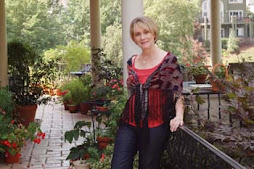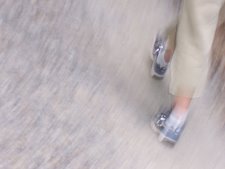
Today on Words to Go, Dr. Harry Kraus, novelist and surgeon and now missionary doctor will share his amazing story of how he came to give his life away.
PATTY: Harry, you and I first met, I remember distinctly, in a hotel elevator. We were all attending an annual writer’s retreat. Our online group we belong to holds this retreat every year. We were giving away books and I had yours and we swapped autographs. I had already stolen a peek and was wowed at your style. But it was shortly after that you announced to our online community that you were going to the mission field. Would you like to share how you came to that crossroads?
HARRY: A few years ago, I was following a particular course in life, justifying every step. I was a successful surgeon, a partner in a prestigious group, owned a custom home on twelve acres in the country with 360 degree view of the mountains.
PATTY: Wow!
HARRY: Then, on a short term trip to
PATTY: Yes, I often say, “I just want to be helpful.” But this is a giant step beyond just offering a helping hand.
HARRY: I didn't need any other "call." I felt it was an opportunity to do good, so I did it. We sold the house, quit my job, and moved to
PATTY: My hubby and I were first called to
HARRY: Compassion is nothing more than love in action. But, yes, everything changed! I committed "career suicide," leaving a successful practice in mid-stream. We sold out, moved to
PATTY: My prayer as a mom was that God would look after our sons and their future. They’re both in college on scholarships. Like you, we feel our urban experience helped build character in our boys. Any regrets?
HARRY: None. This sacrifice for the sake of compassion was not difficult for us. We didn't have to serve. We got to serve. Serving our Lord in this way was a privilege, a grace. If I had to do it, the rewards would be wages. But it's not about wages; the Gospel is about grace.
PATTY: Where did you work in
HARRY: We lived in
PATTY: What exactly is the work you do?
HARRY: I am still an AIM missionary (Africa Inland Mission) officially on furlough. The work I did was work as a surgeon in a mission hospital. Many of my patients were Somali muslims who sought their care from us at the Christian hospital since their country is void of good care. I was supported as a missionary through supporters who give to A.I.M.
PATTY: The "call" you speak of has brought great benefit to your family, you seem to say. I'm sure it has given you new stories to write. Do your African stories now inform your novels?
HARRY: My next novel, Salty Like Blood has a subplot of a Somali woman. Next year’s novel, The Six Liter Club is the story of the daughter of an American surgeon missionary and his Congolese wife.
PATTY: Can you share a story about how your work there has benefited an individual? What did that do for you?
HARRY: I saw a couple of Muslim patients come to faith in Christ. The challenge of being the first Christian that many of these adults ever met was exciting and scary! To think that the first impression that they have of a real Christian came from me. All we can pray is that God will be large in us and that we will be small.
PATTY: Any memories that stand out from the rest?
HARRY: I've never been that thrilled with the way Kenyans sing. Always from the front of their throats. Nasal almost. A bit too squeezed and narrow, not supported and full the way we're taught to sing in choirs back home.
PATTY: I’ve seen videos, so I think I’m imagining that singing voice.
HARRY: But one morning something was different. I've been on my own as the only surgeon for the first ten days this month. And it's been crazy-busy, fun in a twisted way, but stressing me out a bit to be on-call 24/7 for so many days in a row, and wearying, especially when dealing with so many suffering people.
PATTY: Sure, not so nicely managed like our hospitals here at home.
HARRY: Saturday night brought me two assault victims, both with open skull fractures, one a victim of rape. Sunday and Monday brought me two babies, both with intussuception (a rather bazarre condition where the bowel telescopes inside out, rather like one section of bowel being pulled inside out and pushed downstream). Both had emergency surgery.
Tuesday, I spent hours doing a complicated burn scar reconstruction to free the arm of a young Somali boy who had healed from a bad burn so that his arm was one with his chest from the shoulder to the elbow. Wednesday, a tired bus driver turned the job over to an assistant who travelled less than three kilometers before crashing. We saw fifty patients from that one accident. The pace was near-brutal and I spent hours in the operating theatre repairing complex facial lacerations, and putting in chest tubes for punctured lung patients along with dealing with all of my elective case-load. Thursday after a full day in clinic, I had to face a revision of a head-and-neck cancer patient, and two abdominal explorations, one with peritonitis from tuberculosis (something I never saw back home, but that is common in
PATTY: Non-stop action, sounds like.
HARRY: So this morning, I dragged back into the hospital wondering what craziness I would find. And that brings me back to the way the Kenyans sing. I was trying to write a note in a patient's chart when the private ward nurses gathered at the nurse’s station for morning devotions. The young female nurse began the song by herself, waiting for the others to join in.
"Burdens are lifted at
Burdens are lifted at
Jesus is very near."
PATTY: Not something we’d see here in our hospitals.
HARRY: Immediately, my spirit soared with the message of the song. I cared little about the delivery. The message was water to my thirsty soul.
"Days are filled with sorrow and care. Hearts are lonely and drear.
Burdens are lifted at
I joined the chorus, not able to sing much beyond a whisper. "Burdens are lifted at
"Cast your care on Jesus today. Leave your worry and fear. Burdens are lifted at
Yes. Very near. Only I need eyes of faith for the water of the truth to penetrate the dusty cover over my soul.
I worked through the day with the song never far from my lips.
I realize that burdens are not necessarily evaporated because of the cross, but I've started to understand that God's grace, supremely manifested in the cross, is the same grace that sometimes comes disguised as daily "burdens". And that knowledge makes the burdens seem lighter. Sent by a sovereign God to work His way in me.
"Troubled soul, the Savior can see. Every heartache and fear. Burdens are lifted at
I walked away from the private unit towards the operating theatre where I was met by a patient I'd treated months ago. He cried and hugged my neck in gratitude for a service I'd provided to him. He kissed my hand and handed me a large bag of Christmas presents. I am broken to receive his gift of four beautiful pineapples and eight bags of black Kenyan tea. His love to me was the second unexpected grace. Gentle grace water-whispers to dry ground.
Tonight, I returned to the hospital to see a pedestrian struck by a passing vehicle. He was directing his donkey cart a bit too close to fast traffic. He has broken at least five ribs and his scapula. After admitting him, I walk down the hospital corridor and again, I am touched by music, this time coming from the hospital chapel. "Hakuna kama wewe." ("There is none like you.") I let the meaning of the words wash over me. None like you, Jesus. None like you.
PATTY: That’s a gorgeous story, Harry. It so speaks to Christ’s comeliness in the midst of ugly terrain. It’s in places like this that we're are faced with his beatific essence. All we can do is kneel, humbled at how the humblest of his servants worship him, like stones crying out. What is a lesson you’ve learned from this experience?
HARRY: This is straight from my journal: “Today I'm here to serve these people, but today, they have served me. When I arrive home, I see a single strand of white lights that Sam and Kris strung along the roof of our house. Inside, a rather pitiful Christmas tree has been decorated with a few choice ornaments that Kris thoughtfully packed and brought to give our family a sense of home. I smiled. Yes, it is Christmas season in Kijabe.”
PATTY: A stunning story from novelist Harry Kraus, a missionary doctor in
Here’s one way you can help authors like Harry and all of us. Buy our books—new! Harry’s next novel is set to release Mar. 24, 2009. If you can order his novel Salty Like Blood on that day, it increases his ranking on Amazon and, thus, brings it to the public eye so that more people are aware of it.
.
Harry is giving away his book about love called The Cure in Saturday’s Feel the Love book give.
Leave your feedback to be entered in the contest. And could you kindly tell your friends about Words to Go?
Next week I’ll chat with four different authors about what it’s like to grow up feeling as if there’s something a little different about you, your not sure what--but something tells you its going to end up really great! Join us for HERE COMES TROUBLE—GROWING UP ROUND IN A SQUARE PEG LIFE!








